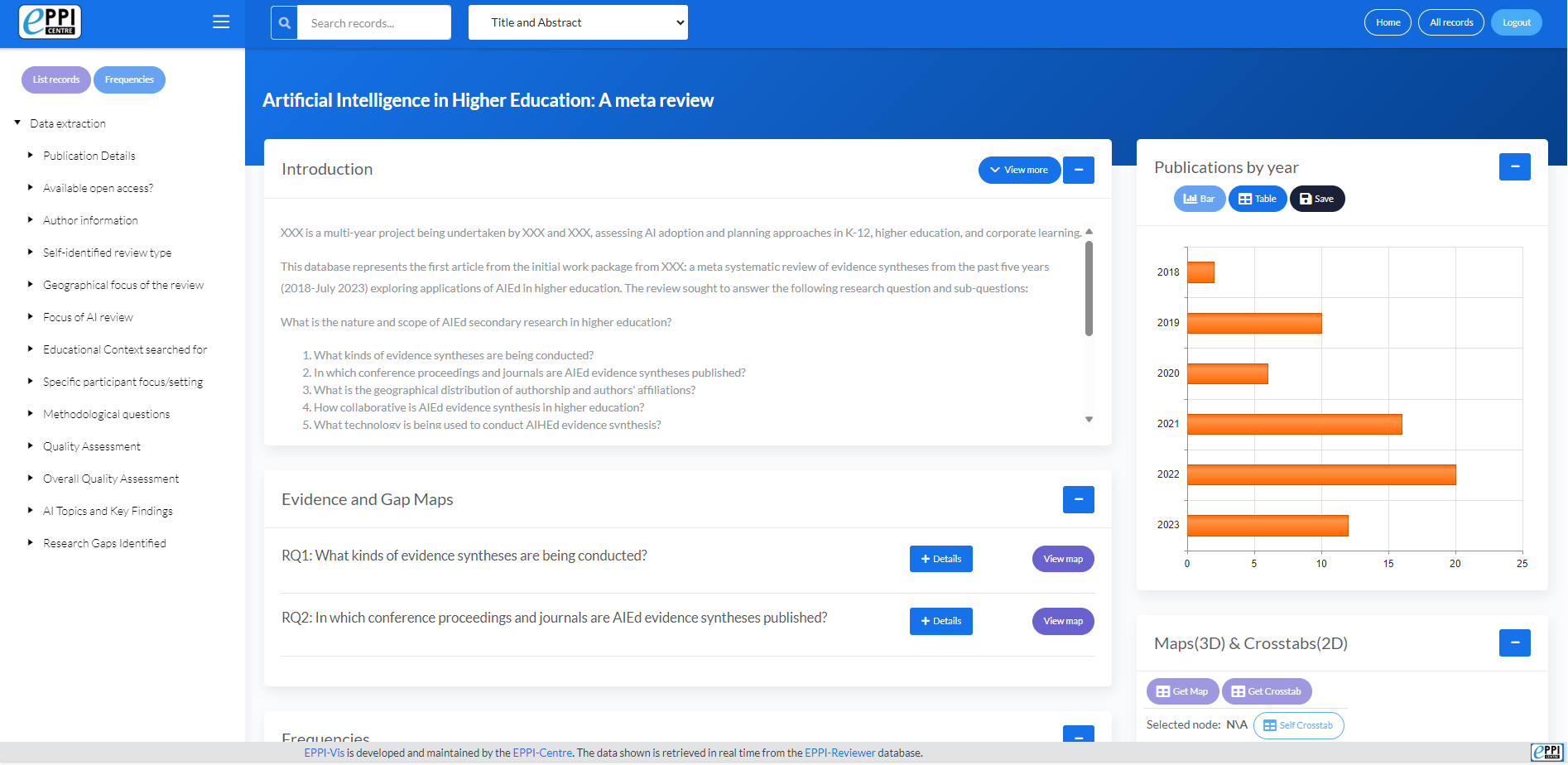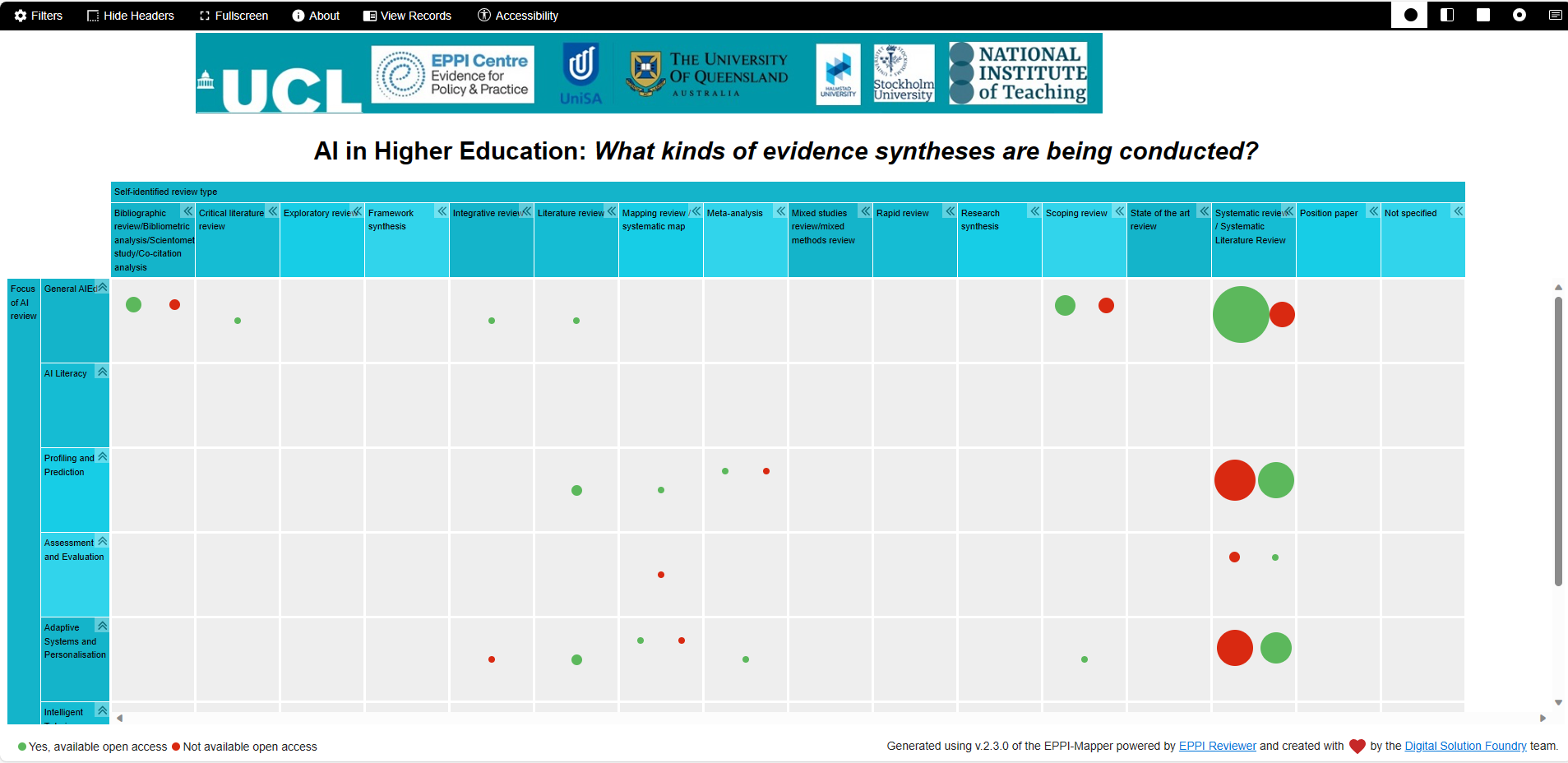Dr. Melissa Bond (UCL, University of Stavanger, NIoT), Prof. Maarten de Laat (UniSA), Dr. Hassan Khosravi (UQ), Dr. Nina Bergdahl (Halmstad University, Stockholm University), Dr. Violeta Negrea (NIoT), Dr. Emily Oxley (NIoT), Prof. Sin Wang Chong (NIoT), Phuong Pham (UniSA), & Prof. George Siemens (UniSA).
As a result of the unprecedented rise of research on artificial intelligence applications in education, Dr Melissa Bond is leading a team of researchers from the University of South Australia (Australia), University of Queensland (Australia), Halmstad University (Sweden), and the National Institute of Teaching (UK) conducting a systematic review of reviews, focused on AI applications in teaching and learning from January 2018 - July 2023. 307 different kinds of evidence syntheses were located from multiple databases.
Artificial intelligence in higher education
The first analysis and publication arising from this project focused on the higher education only sample, comprising 66 evidence syntheses. The review sought to answer the following research question and sub-questions:
What is the nature and scope of AIEd secondary research in higher education?
- What kinds of evidence syntheses are being conducted?
- In which conference proceedings and journals are AIEd evidence syntheses published?
- What is the geographical distribution of authorship and authors’ affiliations?
- How collaborative is AIEd evidence synthesis in higher education?
- What technology is being used to conduct AIHEd evidence synthesis?
- What is the quality of evidence synthesis exploring AIEd in higher education?
- What main topics are explored in AIEd secondary research?
- What are the key findings of AIEd research in higher education?
- What are the benefits and challenges reported within General AIEd reviews?
- What research gaps have been identified in AIEd secondary research in higher education?
All search strategy information and appendices are available on the Open Science Framework.
Click here to be taken to an open access database of the coding in the review, based on the higher education only sample.

Interactive evidence and gap maps (coming soon)
Click on any image below, to be taken to that interactive evidence and gap map. From there, you can explore the studies within this review, as well as download a RIS file of all of the items.
|
RQ1: What kinds of evidence syntheses are being conducted?

|